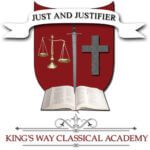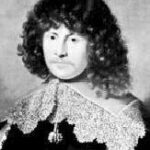Who was James Harrington? (1611-1677) James Harrington was born to an old English country family. He published The Commonwealth of Oceana in 1656, dedicated to Oliver Cromwell who at first suppressed it.
Historical context. James Harrington was a leading member of the cadre of “early Whigs.” He wrote during the relative freedom of Cromwell’s Protectorate. He stood opposed to the tyranny of the Stuart kings. Harrington was joined by Milton, Sidney and a handful of other Whigs. They set forth a canon of republican thought that was regarded as gospel by English Whigs for most of the 17th century. This was the Century of Revolution that laid the footings for modern secular society. These Whigs are known as the British Commonwealth men. Harrington wrote to set forth a Republican blueprint for government to replace the defeated monarchy.
England was distracted by her battle with the Stuart kings for much of the 17th Century. Meantime, the rest of Europe was embroiled in the Thirty Years War (1618-1648). The Catholic Counter Reformation had a military arm led by the Holy Roman Emperor, Its goal was to suppress the Protestants by force. The struggle for freedom killed over 20% of the German people. It also weakened the Holy Roman Empire, leaving France the major power in Europe.
Summary of Harrington’s teaching. Harrington’s Oceana stood for the island nation England. The book is both Utopian in vision and practical in effect. It has two primary themes. One is the doctrine that stability is greatest where those who own the most property hold political power. To avoid concentration of power Harrington set forth the “equal agrarian” principle. This would limit the amount of property held by anyone.
Harrington’s second theme or concern is the design of a constitution. This must ensure “an empire of laws, and not of man.” Here he outlined such devices as rotation in office and a popular assembly. The latter would balance the more aristocratic legislative body. Also included were a secret ballot and freedom of religion. These features were rooted, not in theology, but in utility and expediency. Oceana tried to apply Francis Bacon’s scientific method to social problems.
Implications for subsequent history. Harrington’s system came to life a generation later in the Glorious Revolution of 1688. It set up a secular republic under Parliament. The Solemn League & Covenant (1643-44) was cast by the wayside. In that the leaders of church and state had sworn to govern by the Bible. Man may forget, but God does not. God brought up Joshua’s covenant with the Gibeonites hundreds of years later at the time of Saul (II Sam. 21). The impact on the colonies was quick and profound. For instance, James II had revoked the royal charter of the Massachusetts Bay colony a few years before. William and Mary restored the charter, but now the right to vote was based on land ownership. The covenant with God was discarded. Thus, New England government was cut off from its spiritual footing and now stood on a materialist base. The effect of these rebel acts are still felt in Britain and her former colonies.
Indeed, the legacy of the British Commonwealth men went far beyond Great Britain. It is even more evident in the American Constitution of 1787. Some historians have traced the roots of the American Constitution to four sources, not necessarily in this order:
Biblical analysis. The right to vote, or assume the mantle of leadership in civil government, is a matter of covenant with God. It is not a question of land ownership. Ownership of property is the evidence of liberty, but it is not the source of that liberty. Christ is the source of freedom. An individual or nation may realize true freedom only in Him. “And ye shall know the truth and the truth shall make you free,” declares the Apostle John (Jn. 8:32). Thus, the stewardship of political liberty can be trusted only to those in covenant with Christ.
Corrective or prescriptive actions. The Bible’s test oath must be restored as the basis for taking part in civil government. It is needed for both the citizen’s right to vote and the ruler’s right to serve. It is patterned after Bible examples such as Nehemiah’s reform. Notice that both civil and church leaders joined in a covenant oath. They made a written commitment “to walk in God’s law” (Neh. 10:28,29). The oath should be a simple commitment to exercise civil authority according to the Bible.


